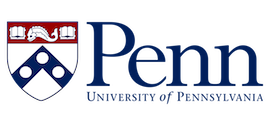Chris Mustazza is a teacher, technologist, poet, musician, podcaster, and translator. He serves as Director of Academic Computing for Penn’s School of Arts & Sciences, Co-Director of the PennSound Archive, and as adjunct faculty in Penn’s English department, where he earned his Ph.D.
Chris’s research and teaching focuses on audio recordings of poets performing their work. He approaches this work from the perspective of media archaeology (the study of historical sound recording equipment), poetics, and experimental methods such as machine listening and artificial intelligence.
Chris teaches a range of courses, included Modern American Poetry, Poetry Audio Lab (a course of his design that asks the question what 20th-century poetry sounds like if approached primarily through sound recordings), Poetry & Music, and Podcasting. In all of these classes, he encourages students to work with media in a hands-on fashion, creating remixes, mashups, and juxtapositions of poetry and other media. Chris was awarded the Penn Prize for Teaching Excellence by a Graduate Student for his teaching, nominated by the students.
As Director of Academic Computing, Chris leads the tech strategy for all of the academic departments and research centers in the School, as well as instructional technology, and the design of immersive, high-tech media spaces. He was recognized for his mentorship of the staff with a University-wide Model Supervisor Award, nominated by his team.
As Co-Director of PennSound, the world’s largest archive of poetry recordings, Chris collaborates with co-directors Al Filreis and Charles Bernstein to build on the collection. Chris has edited recordings of poets such as Gertrude Stein, James Weldon Johnson, Robert Frost, T.S. Eliot, and Vachel Lindsay, many of the recordings never before released and none of them previously available as the master recordings now available in PennSound.
 Chris was born in the Bronx, NY, grew up the child of an immigrant mother, who came to the U.S. from Calabria, Italy, and a first-generation Italian-American father, who recently retired from a faculty position at Penn State. Chris has a deep interest in Italian and Italian-American culture, which has led him to work on translations for a forthcoming volume on Italian contemporary poetry, and also a set of Calabrese dialect translations.
Chris was born in the Bronx, NY, grew up the child of an immigrant mother, who came to the U.S. from Calabria, Italy, and a first-generation Italian-American father, who recently retired from a faculty position at Penn State. Chris has a deep interest in Italian and Italian-American culture, which has led him to work on translations for a forthcoming volume on Italian contemporary poetry, and also a set of Calabrese dialect translations.


